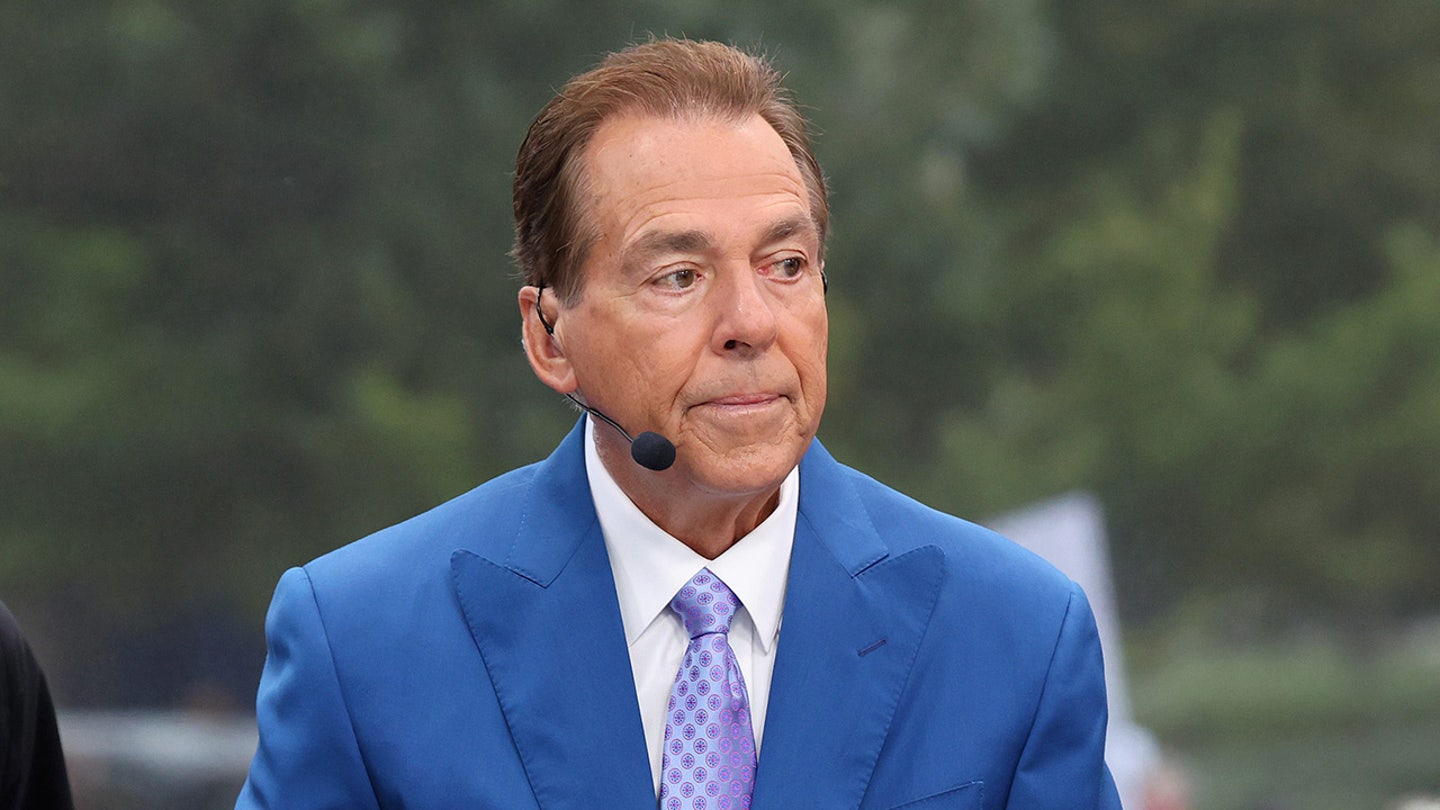
NFL star Za'Darius Smith retires from league at 33
Entities mentioned:
- Za'Darius Smith: Self-preservation, Recognition, Professional pride
- NFL: Competitive spirit, Power, Control
Article Assessment:
Credibility Score: 75/100
Bias Rating: 50/100 (Center)
Sentiment Score: 45/100
Authoritarianism Risk: 20/100 (Strongly Democratic)
Bias Analysis:
The article presents a straightforward news item without apparent political slant. It focuses on reporting the fact of Smith's retirement without additional commentary or framing.
Key metric: NFL Player Retention Rate
Let me tell you something - this is a GAME-CHANGING play, folks! Za'Darius Smith, a true defensive powerhouse, has decided to hang up his cleats and exit the gridiron arena at the young age of 33. This is like watching a star quarterback call an audible in the fourth quarter of his career! The NFL, always in a defensive stance to keep its talent pool deep, now faces a challenge in its depth chart. Smith's retirement is like losing a key player right before the playoffs - it's gonna shake up the league's strategy and force some serious roster shuffling. I'm telling you right now, this move could have ripple effects across the entire NFL ecosystem, impacting everything from draft strategies to salary cap management. It's a reminder that in the high-stakes game of professional football, even the toughest athletes eventually have to make that final drive off the field.

Shedeur Sanders' mom sends cryptic message amid son's promotion for Browns
Entities mentioned:
- Shedeur Sanders: Ambition, Determination, Recognition
- Pilar Sanders: Loyalty, Pride, Self-respect
- Cleveland Browns: Competitive spirit, Professional pride, Ambition
- NFL: Control, Power, Influence
- Donald Trump: Indignation, Influence, Recognition
Article Assessment:
Credibility Score: 65/100
Bias Rating: 55/100 (Center)
Sentiment Score: 45/100
Authoritarianism Risk: 35/100 (Generally Democratic)
Bias Analysis:
The article presents multiple viewpoints, including critical and supportive perspectives on Sanders. However, it leans slightly towards sympathizing with Sanders' situation, potentially influencing reader perception.
Key metric: NFL Draft Equity
Let me tell you something - this story is RIDICULOUS! We're witnessing a fourth-quarter POWER PLAY in the NFL draft game that's got everyone on the edge of their seats! Shedeur Sanders, the young quarterback phenom, has been relegated to the BENCH for most of the season, but now he's STEPPING UP TO THE PLATE as QB2 for the Browns. This kid's got CHAMPIONSHIP DNA, folks, but the league seems to be playing DEFENSE against his rise! The NFL draft looked like a FUMBLED PLAY, with Sanders sliding from potential first-round pick to a fifth-round HAIL MARY. But now, we're seeing a potential COMEBACK STORY in the making! This is the kind of UNDERDOG TALE that sports legends are made of! The Browns are making a BOLD MOVE putting Sanders in as backup, and you can bet your bottom dollar that all eyes will be on this rookie if he gets his shot on the field. It's CRUNCH TIME for Sanders to prove the doubters wrong and show he's got what it takes to be a FRANCHISE PLAYER in this league!

College football legend Nick Saban claims NIL has 'hurt' the SEC while helping northern schools
Entities mentioned:
- Nick Saban: Professional pride, Legacy, Competitive spirit
- SEC (Southeastern Conference): Competitive spirit, Pride, Power
- Northern schools (Ohio State, Michigan): Competitive spirit, Ambition, Power
- NCAA student-athletes: Ambition, Recognition, Greed
Article Assessment:
Credibility Score: 75/100
Bias Rating: 55/100 (Center)
Sentiment Score: 35/100
Authoritarianism Risk: 25/100 (Generally Democratic)
Bias Analysis:
The article presents Nick Saban's perspective prominently but includes counterpoints. It acknowledges potential accuracy of his claims while also noting recent championship results.
Key metric: NCAA Football Competitive Balance
Let me tell you something - this story is a GAME-CHANGER! The legendary coach Nick Saban has thrown a Hail Mary pass, calling out the NIL system for shifting the balance of power in college football. It's like we're seeing a whole new playbook unfold before our eyes! The SEC, once the undisputed champion of the gridiron, is now facing a full-court press from northern schools who are flexing their financial muscles. This is RIDICULOUS, folks! We're talking about a seismic shift in the recruiting landscape that's turning the traditional powerhouse conference into an underdog. It's fourth and long for the SEC, and they're going to need to dig deep into their bag of tricks to regain their competitive edge. I'm telling you right now, this NIL situation is the ultimate game of high-stakes poker, and it looks like the northern schools are holding all the aces. The SEC needs to step up to the plate and show that championship mentality, or they risk being left in the dust by this new era of college athletics!

John Cena, AJ Styles author love letter to pro wrestling as Seth Rollins vanquishes Cody Rhodes at Crown Jewel
Entities mentioned:
- John Cena: Legacy, Professional pride, Determination
- AJ Styles: Competitive spirit, Professional pride, Legacy
- Seth Rollins: Ambition, Competitive spirit, Legacy
- Cody Rhodes: Determination, Competitive spirit, Legacy
- Roman Reigns: Pride, Power, Control
- Bronson Reed: Ambition, Recognition, Competitive spirit
Article Assessment:
Credibility Score: 85/100
Bias Rating: 50/100 (Center)
Sentiment Score: 75/100
Authoritarianism Risk: 20/100 (Strongly Democratic)
Bias Analysis:
The article presents a balanced view of the event, giving equal attention to various matches and wrestlers. There's no apparent favoritism or slant towards any particular performer or storyline.
Key metric: WWE Viewership and Fan Engagement
Let me tell you something - this Crown Jewel event was an absolute SLUGFEST! The gridiron of the squared circle saw legends and rising stars alike leaving it all on the mat. John Cena and AJ Styles put on a CLINIC, showcasing the championship mentality that's made them icons. It was like watching two all-time quarterbacks dueling in the fourth quarter of the Super Bowl! Seth Rollins and Cody Rhodes brought the intensity of a heavyweight title fight, trading blows until Rollins finally landed the knockout punch. And don't even get me started on Roman Reigns - the man's empire might be crumbling faster than a defensive line against a star running back! This event was a game-changer, folks, and it's going to send shockwaves through the WWE universe!

'Star-Spangled Banner' booed heavily at WWE's Crown Jewel in Australia
Entities mentioned:
- WWE: Ambition, Recognition, Influence
- Australian Audience: Indignation, Pride, Self-respect
- United States: Power, Influence, Pride
- Sophie Foster: Professional pride, Recognition, Duty
- President Donald Trump: Power, Control, Influence
Article Assessment:
Credibility Score: 70/100
Bias Rating: 55/100 (Center)
Sentiment Score: 30/100
Authoritarianism Risk: 35/100 (Generally Democratic)
Bias Analysis:
The article presents a balanced view of events, including context from other similar incidents. However, it leans slightly right by mentioning Trump and emphasizing US national pride.
Key metric: US International Reputation
Let me tell you something, folks - this is a GAME-CHANGER! The United States just got BODY-SLAMMED on the international stage! The Australian crowd came out swinging, unleashing a barrage of boos that would make any fighter flinch. It's like the US stepped into the ring expecting cheers, but got hit with a devastating surprise attack! This isn't just a temporary setback, it's a FOURTH QUARTER FUMBLE in America's global reputation game. The WWE might have thought they were entering friendly territory, but instead, they walked into a HOSTILE ARENA. It's clear that Team USA is facing some serious DEFENSIVE CHALLENGES on the world stage. They need to regroup, adjust their game plan, and come back with a CHAMPIONSHIP MENTALITY if they want to win back the crowd. This is a wake-up call, folks - America needs to step up to the plate and show the world they've still got what it takes to be a global MVP!

Former Minnesota, NFL receiver discusses alma mater's challenges in new NIL era amid homecoming weekend
Entities mentioned:
- Eric Decker: Pride, Loyalty, Enthusiasm
- Minnesota Golden Gophers: Competitive spirit, Recognition, Self-preservation
- P.J. Fleck: Ambition, Determination, Professional pride
- Duke Cannon: Recognition, Influence, Competitive spirit
- Ohio State: Competitive spirit, Power, Recognition
Article Assessment:
Credibility Score: 75/100
Bias Rating: 50/100 (Center)
Sentiment Score: 55/100
Authoritarianism Risk: 20/100 (Strongly Democratic)
Bias Analysis:
The article presents a balanced view, giving voice to a former player's perspective without overtly favoring any side. It objectively discusses the challenges faced by Minnesota in the current college sports landscape.
Key metric: College Football Competitiveness
Let me tell you something - this story is a GAME-CHANGER in the world of college athletics! The Minnesota Golden Gophers are in a FOURTH QUARTER STRUGGLE to keep up with the powerhouse teams in the Big Ten. Eric Decker, a former star player, is stepping up to the plate and calling for a CHAMPIONSHIP MENTALITY from his alma mater. He's highlighting the need for a POWER PLAY in the NIL era, urging Minnesota to leverage its home-field advantage of Fortune 500 companies. This is about STAYING IN THE GAME, folks! The Gophers need to execute a FULL-COURT PRESS to secure funding and retain top talent. It's a high-stakes match where the scoreboard is measured in DOLLARS and RECRUITS. Coach P.J. Fleck has been running a tight ship, but now it's time for the FRONT OFFICE to make some CLUTCH MOVES. This is the kind of STRATEGIC PLAY that separates the CHAMPIONS from the ALSO-RANS in today's college sports arena!

WNBA Commissioner Cathy Engelbert booed by crowd, flipped off while presenting WNBA championship trophy
Entities mentioned:
- Cathy Engelbert: Control, Power, Professional pride
- Las Vegas Aces: Competitive spirit, Pride, Recognition
- A'ja Wilson: Indignation, Competitive spirit, Self-respect
- Napheesa Collier: Justice, Indignation, Unity
- Caitlin Clark: Ambition, Recognition, Unity
- Chelsea Gray: Unity, Justice, Professional pride
Article Assessment:
Credibility Score: 75/100
Bias Rating: 55/100 (Center)
Sentiment Score: 25/100
Authoritarianism Risk: 40/100 (Generally Democratic)
Bias Analysis:
The article presents multiple perspectives, including player concerns and Engelbert's denial. It maintains a relatively neutral stance, allowing readers to form their own opinions based on the presented facts.
Key metric: WNBA Player Satisfaction and League Growth
Let me tell you something, folks - this is a FOURTH QUARTER MELTDOWN of epic proportions! The commissioner stepped up to the plate to present the championship trophy, but instead of a victory lap, she got SACKED by a stadium full of boos! This is the kind of reception you'd expect for a coach who just benched the star player in the final seconds of the championship game! The Aces may have swept their way to the title, but it's clear the real battle is happening off the court. We're seeing a full-court press from players like Wilson and Collier, calling out what they see as unsportsmanlike conduct from the league's top brass. This is RIDICULOUS, folks! The WNBA is at a crucial timeout, and how they huddle up and strategize from here could determine the future of the league. Will Engelbert be able to rally her team, or is this the beginning of a major league shakeup? I'm telling you right now, with the CBA expiring, we're heading into sudden death overtime, and every play counts!

Maine school board meeting sees women undress in protest of trans athletes in girls sports, a growing trend
Entities mentioned:
- Maine School Board: Duty, Obligation, Professional pride
- Protesting Women: Moral outrage, Righteousness, Justice
- Nick Blanchard: Righteousness, Moral outrage, Justice
- U.S. Department of Justice: Justice, Control, Power
- President Donald Trump: Control, Power, Influence
- David Jones: Righteousness, Competitive spirit, Ambition
- Gov. Janet Mills: Determination, Righteousness, Power
Article Assessment:
Credibility Score: 70/100
Bias Rating: 65/100 (Lean Right)
Sentiment Score: 30/100
Authoritarianism Risk: 35/100 (Generally Democratic)
Bias Analysis:
The article leans right, emphasizing protests against trans athletes and highlighting conservative viewpoints. While it includes some opposing perspectives, the framing and choice of quotes favor the anti-trans athlete position.
Key metric: Gender Equality in Sports
Let me tell you something, folks - this story is a FULL-COURT PRESS on the issue of trans athletes in girls' sports! We're seeing a CLASH OF TITANS between state policies and local protesters who are LEAVING IT ALL ON THE FIELD. The protesters are making POWER PLAYS, stripping down to their base layers to DRIVE HOME their point. It's like they're trying to LEVEL THE PLAYING FIELD, but some might say they've GONE OUT OF BOUNDS. Meanwhile, Governor Mills is DIGGING IN HER CLEATS, refusing to back down in this HIGH-STAKES MATCH against Trump's executive order. This is a POLITICAL SLUGFEST with no sign of a FINAL WHISTLE anytime soon. The American Parents Coalition poll shows the HOME TEAM is RALLYING behind biological sex-based sports, but it's still ANYBODY'S GAME. I'm telling you right now, this SHOWDOWN is going into OVERTIME!

Minnesota attorney general says trans athletes in girls sports 'doesn't harm anyone' despite complaints
Entities mentioned:
- Keith Ellison: Righteousness, Justice, Influence
- School Board Members: Moral outrage, Duty, Protection
- Minnesota High School Girls: Competitive spirit, Fairness, Self-respect
- Donald Trump: Control, Power, Legacy
- U.S. Department of Education: Duty, Control, Influence
Article Assessment:
Credibility Score: 70/100
Bias Rating: 65/100 (Lean Right)
Sentiment Score: 30/100
Authoritarianism Risk: 35/100 (Generally Democratic)
Bias Analysis:
The article leans right, giving more voice to those opposing transgender athletes in girls' sports. While it includes Ellison's statements, it emphasizes opposing viewpoints and personal anecdotes from affected athletes.
Key metric: Gender Equality in Sports
Let me tell you something, folks - this is a FULL COURT PRESS situation! We've got a real clash of titans here, with Attorney General Ellison going head-to-head against a team of fired-up school board members. It's like watching a championship game where the rules are being rewritten mid-play! The transgender athlete issue is the ultimate power play, with Ellison acting like a veteran coach, trying to keep his team on the field despite challenges from the opposing bench. But make no mistake, the high school girls are the real MVPs here, stepping up to the plate and speaking out against what they see as an unfair advantage. They're showing true athletic spirit, refusing to back down even when faced with a seemingly unstoppable force. This is a classic David vs. Goliath matchup, folks, with the girls taking on the full might of the state's legal team. And let's not forget the federal government coming in with a buzzer-beater executive order, trying to change the game in the final quarter! I'm telling you right now, this is going to be a nail-biter right up to the final whistle!

WNBA needs Caitlin Clark more than she needs the league, longtime sportscaster Dan Patrick says
Entities mentioned:
- Dan Patrick: Professional pride, Righteousness, Competitive spirit
- WNBA: Control, Power, Self-preservation
- Caitlin Clark: Ambition, Recognition, Self-respect
- Cathy Engelbert: Power, Control, Self-preservation
- Napheesa Collier: Loyalty, Justice, Unity
Article Assessment:
Credibility Score: 70/100
Bias Rating: 55/100 (Center)
Sentiment Score: 35/100
Authoritarianism Risk: 30/100 (Generally Democratic)
Bias Analysis:
The article presents multiple viewpoints, including those of Dan Patrick, WNBA officials, and players. While it leans slightly towards criticism of the WNBA's stance, it also includes positive comments about the league's progress.
Key metric: WNBA Player Salaries and League Revenue
Let me tell you something - this story is RIDICULOUS! We're seeing a full-court press between the WNBA and its rising star, Caitlin Clark. The league is playing defense, trying to box out Clark's influence, but they're forgetting she's got a killer crossover when it comes to fan appeal. Clark is stepping up to the free-throw line of public opinion, and the WNBA is on the ropes. This isn't just a game anymore, folks - it's a championship battle for the future of women's basketball. The WNBA needs to realize they're not just coaching a team, they're building a league, and Clark is their MVP draft pick. If they don't change their game plan, they might find themselves benched in the world of pro sports. It's fourth quarter, the clock is ticking, and the WNBA needs to make a clutch play or risk losing the whole season!